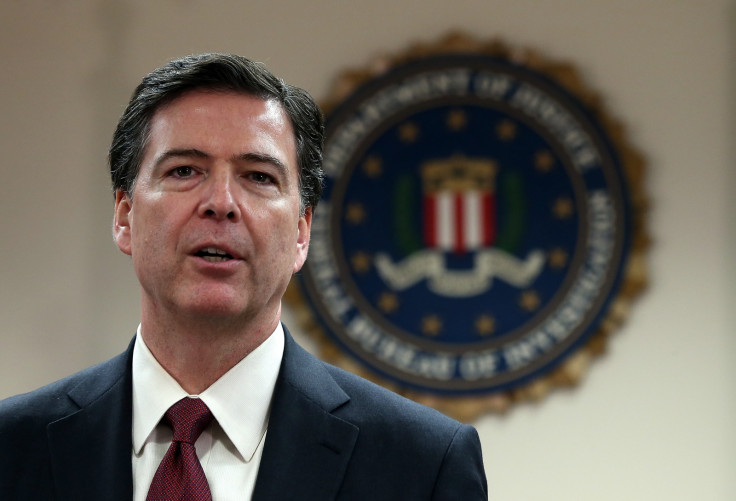Apple vs FBI: Director James Comey wishes people would 'stop saying the world is ending'

FBI director James Comey has played down reports that US law enforcement wants to set a precedent by forcing technology giant Apple to circumvent its iPhone encryption and aid the investigation into the San Bernardino shooting. Instead, in a carefully worded statement, Comey has made an emotional appeal to critics and said his investigators would not be able to "look the survivors in the eye" if they don't attempt to access the locked device.
"We don't want to break anyone's encryption or set a master key loose on the land," he said. "I hope thoughtful people will take the time to understand that. Maybe the phone holds the clue to finding more terrorists. Maybe it doesn't. But we can't look the survivors in the eye, or ourselves in the mirror, if we don't follow this lead.
"Reflecting the context of this heart-breaking case, I hope folks will take a deep breath and stop saying the world is ending, but instead use that breath to talk to each other. The San Bernardino litigation isn't about trying to set a precedent or send any kind of message. It is about the victims and justice".
Apple vs FBI - who is wrong? San Bernardino County says FBI told it to reset Syed Farook's Apple ID
So, what's going on?
The locked device in question is an iPhone 5C recovered among the processions of Syed Rizwan Farook, who killed over a dozen people in California in an alleged Islamic State-inspired terror spree last year. After discovering the device was locked and password protected, Apple was hit with a federal court order to help the FBI gain access to the device. In response, Apple CEO Tim Cook issued a scathing statement refusing to comply with the request, claiming that aiding FBI investigators would set a "dangerous precedent" for those offering privacy-based products.
While Apple was then given a three-day extension to respond to the court order, separate litigation from the US Department of Justice (DoJ) was soon filed, adding to the pressure. Yet in the face of mounting controversy from a wide range of technology giants such as Google, Facebook, Twitter, Microsoft and WhatsApp, Comey has now claimed the issue is not as ground-breaking as people argue.
"The particular legal issue is actually quite narrow," he said. "The relief we seek is limited and its value increasingly obsolete because the technology continues to evolve. We simply want the chance, with a search warrant, to try to guess the terrorist's passcode without the phone essentially self-destructing and without it taking a decade to guess correctly. That's it."
Privacy and safety
Comey, who has long warned that encryption is aiding terrorism, added: "Although this case is about the innocents attacked in San Bernardino, it does highlight that we have awesome new technology that creates a serious tension between two values we all treasure – privacy and safety.
"That tension should not be resolved by corporations that sell stuff for a living. It also should not be resolved by the FBI, which investigates for a living. It should be resolved by the American people deciding how we want to govern ourselves in a world we have never seen before. We shouldn't drift to a place – or be pushed to a place by the loudest voices – because finding the right place, the right balance, will matter to every American for a very long time."
Meanwhile, the FBI was recently forced to admit that it gave consent for the original investigators to reset the San Bernardino's iCloud passcode which effectively destroyed any chance of retrieving backups remotely stored from the Apple device.
© Copyright IBTimes 2025. All rights reserved.






















